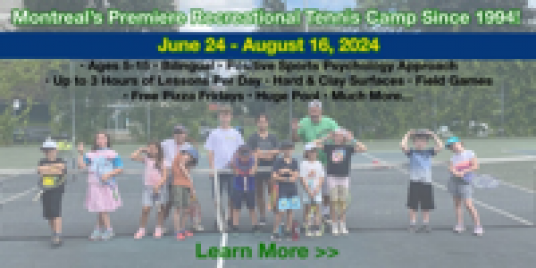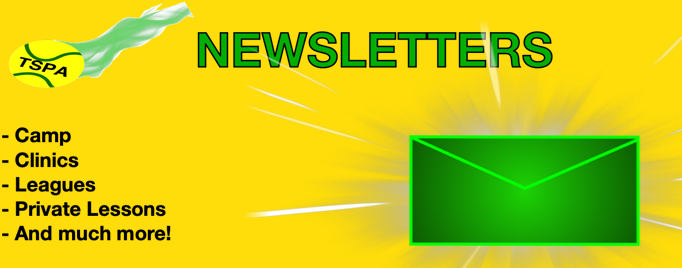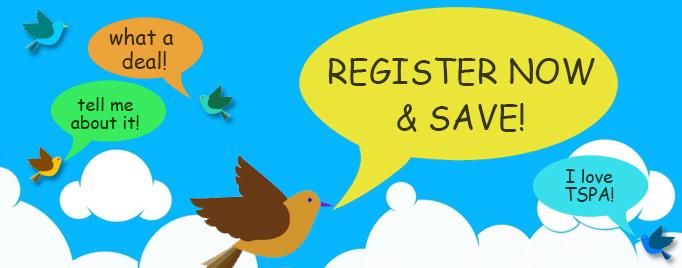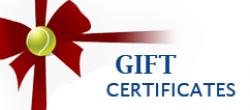Testimonials
Camp
With Lior Doron as the academy director he has put together an excellent program.
Jack Rosenfield
Clinics
I especially liked the online reservation system for the tennis clinics based on one's ski...
Leng Vong Computer programmer
Private Lessons
Private lessons are a great way to get personal, one on one training that you simply canno...
Sam Cohen
PIT & CIT PROGRAM
Pro in Training (PIT) and Counselor in Training (CIT) Manual Training
WELCOME TO THE TSPA PIT & CIT PROGRAM
Thank you for your interest in our PIT & CIT program! This summer you will have an opportunity to learn about games, leadership, children, crafts, communications, and much more. We are pleased of your interest and hope that it will be rewarding for you. Perhaps, you will discover the kind of leader you can be.
Skills Acquired:
As a PIT, you will learn and be responsible for;
• Teaching and training players of all ages particularly the younger age groups. Knowledge will be obtained for
a) Feeding and organizing games
b) drills and games on court
c) strategy
• Administrative skills
a) booking courts online
b) taking attendance
• The opportunity to obtain private and semi-private tennis lessons for pay.
• Other
As a CIT, you will learn and be responsible for;
• To manage bunks and groups of campers
• Techniques to entertain campers
a) specific games and fillers
• Administrative tasks
• Other
Procedures:
In order to be a PIT or CIT an interview process is necessary unless you have participated in our camp sessions in the past. Send your c.v. and cover letter to hr@tspa.ca . In the case that we like what we read about you, you will be contacted for an interview. We do encourage at least 1-2 follow up emails to make sure we have received your application.
Expectation:
Working with children is an enormous responsibility. The expectation of CIT’s and PIT’s is that you will eventually be in a position of working within the TSPA team. You will be treated as a staff within the team and are subject to the same high expectations of our staff. Therefore, verbal and written warning may be issued based on not following TSPA procedures. For the list of procedures, please contact the tennis program coordinator.
Advantages:
• Working with children brings itself an enormous sense of satisfaction and reward. We know that this will be a great part of the advantages of working within the TSPA team.
• Being part of the TSPA team, you will learn team-work, valuable skills and experience.
• As a PIT, you qualify for paid wages based on the latest TSPA salary scale. You may benefit from a demand of additional lessons from TSPA clients. This can be in the form of private, semi-private tennis lessons as well as clinics. You must be at least a 2.5 ranked player. Click here to see the skill level.
• As a CIT, you qualify for paid wages within our current salary scale during your training and when it is complete.
• Once training is complete, generally, CIT’s and PIT’s have an advantage of being hired within the TSPA team. This is why an excellent evaluation is very important.
Upon demand, and based on a favorable experience, a letter of reference can be issued. The goal of this program is to prepare you to be a tennis pro or a counselor. Upon completion, you should be capable of dealing with the wide assortment of situations tennis pros and counselors face on a day-to-day basis. You will have the opportunity to gain;
• Hand on experience
• Administrative duties
• Increased responsibilities
• Other
Levels of Responsibility
As you enter the PIT / CIT program you are given the title of PIT or CIT. Your goal is to gain the title of PIT1 or CIT1 by the end of your experience at this camp. You can do this by working 80 hours and fulfilling all of the expectation of what a PIT or CIT does which you will discover as you read on.
If you accomplish getting the title of PIT 1 or CIT 1 you will be welcome back next summer with the title of PIT 2 or CIT 2. This would be your title if you are returning from last year. If you can achieve CIT 2 you will be highly considered and would gain a considerable advantage for a paid position in out camp the following year. A candidate may, move to the next level within the same year. Our final year of training is the PIT CIT 3.
Things you Will Learn…
Hands On Experience
Actual practice should be the emphasis of any training program. As a PIT and CIT you will be able to have a practical experience in every area of the camp. The camp director will coordinate this schedule for you.
You will be placed with a group and will be responsible for attending to the needs of your campers as scheduled by the camp director. Team work is an essential component of our staff. If you are ever confused or have any questions do not hesitate to ask first, senior staff and then the camp director. Asking questions is the best way to learn.
Group and Peer Dynamic Development
One of the most important things you will learn during the season is how to work with other people in a group. It is very important that you are given a chance to develop these skills. I want you to become leaders for your campers and other PIT’s or CIT’s.
Becoming a leader within Camp community
We also challenge PIT’s or CIT’s to create and participate in a camp community project where you can propose an activity as a group for the whole camp.
Some ideas for this can be:
• Instructing a camp wide game
• Creating a morning camp newsletter (TSPA Today)
• Creating and teaching a camp song
• Any idea you may have and would like to try
Ongoing Assessment and Evaluation
During the season you will be assessed in three significant ways:
• Highlights
• Formative assessment mid-season (July 23rd approximately) and one at the end of the season.
Highlights
There is a highlight component to our program. We will share an online journal using google docs. Sign up as a new user by using the link here. The purpose of this journal is to help you explore what you are learning from your camp experience this summer. It is an opportunity to keep track of your learning experiences and question them so you can develop your leadership skills. Please take some time to review the do's and don't by clicking here.
The only person at camp permitted to read your journal is the sports psychology coach and or the academy director. Anything you say will remain confidential and you may find it a good chance to ask questions you may be uncomfortable to ask in person. I will read your journal and give you feedback on the experiences you choose to discuss.
You are required to submit two highlights for every 40 hours of work usually by Tuesday and Thursday. A power point slide of what is highlights can be seen by clicking here. A rubric can be downloaded if you click here and an example if you click here. The username is flow and password is coachd.
If you have trouble thinking of what to write about you can ask us for ideas.
List of Ideas for Journal Writing
• What have you enjoyed most about being a PIT or CIT?
What are you looking forward to?
An event that occurred during the day that affected you.
• Something you learned
• Questions that may arise - always keep them positive... I wonder how I good of an instructor I can become.
• Something you found funny at camp
• Something that made you happy or that you enjoyed at camp
• How being at camp has changed you
• Open highlight (you create the topic!)
Important aspects to be aware of as a PIT / CIT
PIT’s and CIT’s should bring to the club with the following:
• A positive attitude
Your attitude will reflect on everything and everybody you come in contact with during the program. It is crucial that you express any concerns, so that you can achieve complete success.
• Creativity
As you will undoubtedly note, counselors encounter numerous situations, personalities, and problems. It is important to be creative in dealing with these things, in order to best serve the camper, and yourself. The camp is meant to be enjoyable for campers, and creativity will allow you to overcome obstacles in an efficient fashion, to optimize the camp experience. Be ready to take initiative. Suggest better ways in doing things. It is always best to put your ideas in writing and send it via email especially before an evaluation. During the evaluation, this would be a great time to discuss your ideas in more detail.
• An outlook for an enjoyable summer camp
Summer camp should create a positive environment, but it can only be as good as its staff and participants. How you feel while at camp is reflected in your performance. This implies then that your success is somewhat dependant on your ability to address and solve dilemmas. Furthermore, this indicates the value of asking for advice. If you have problems at camp, or need advice, you should come see Sheila. I am here to help you, and want to see you succeed.
• A safe mentality
Think before you act. First, ensure that the environment is conducive to safe camping. If it’s not, then you cannot proceed. Safety comes before everything else at camp. It is not acceptable to compromise safety for the sake of enjoyment. You are responsible for the campers’ safety. It is to be taken extremely seriously. Anything less will not be tolerated.
• Team spirit
Work cooperatively with staff. Be aware of the people you are interacting with, their emotions and needs, as well as your own. This will help camp run smoothly and help you succeed.
Program Rules And Regulations
Policies
1. Arrive 15 minutes prior to the time of your shift.
2. Tennis shoes (not running shoes) must be worn at all times.
3. Tennis attire for shorts and top. This includes your TSPA shirt that you will receive once you are hired. Collared shirts for men and tennis attire for women.
4. No swearing is acceptable.
5. You must stay on site for all scheduled hours.
6. In order to move up to the next level, you must finish 80 hours within the program.
7. Club procedures and policies apply to you. Click here to read the rule book at the CSL Tennis club (very similar in most clubs). Be sure to read the parts about etiquette.
Proper Procedure
1. If you cannot make it to your shift, normally it is your responsibility to find a suitable replacement if you know in advance that you are responsible for your own bunk. As a PIT or CIT, however, although your work is very valuable, you will not need to find a replacement. You just will need to make - up the time if you are doing your training (the 1st 80 hours) or you simply do not get paid if you do not work. For example, if you are on your 7th day of training out of the 10 day training and you miss this shift. Then on the next day, this will be considered your 7th day of training. You must notify the camp director via email (and confirm that he or she received it) if more then 48 hours or by phone if within 48 hours. For a list of numbers, very important procedures etc. read the staff manual. You must get access to this document by letting the academy director know your email and then signing up for google documents.
2. Participate in informal, ongoing feedback as well as a formal, written performance appraisal. Maintain a positive attitude when receiving criticism. Remember, this is advice on how to make you a better staff member.
3. Report any incident or accident to staff immediately.
4. You are encouraged to report any problems immediately to your immediate supervisor. This is often the sr. tennis instructor on staff and then the academy director. Then these issues can be dealt with in a timely manner.
5. You must complete all tasks assigned.
INTERACTION GUIDELINES
General Guidelines
1. Any form of physical contact should be done in the presence of other staff.
2. Each person has his or her own level of need for personal space. Be aware of this when approaching campers and other staff.
3. If a camper initiates touching (i.e. gives a gentle hug) it is acceptable to respond with an appropriate gesture.
4. Interaction guidelines apply to everyone; staff to staff; staff to campers, and campers to campers.
Acceptable Contact
1. Holding a child’s hand.
2. Gentle pat on the back of the shoulder.
3. Arm around the child, ensure that hand remains on shoulder.
Unacceptable Contact
1. Prolonged touching.
2. Bear hugs to squeeze or control.
3. Holding a child’s wrist instead of his/ her hand.
4. Twisting, pulling, or grabbing any limbs.
5. Swinging campers.
6. Piggybacks.
7. Hitting of any kind (with a ball, slapping, kicking, or punching).
8. Yelling or shouting at campers. (i.e. “shut up”)
9. Belittling or making fun of campers with comments (this will be considered verbal abuse).
I SCREAM, YOU SCREAM, WE ALL SCREAM FOR SUNSCREEN
The sun is a major factor in most summer activities. To ensure the safety of both you and your campers, you should check to make sure everyone (including yourself) has sunscreen. Sunscreen should be reapplied throughout the day. A t-shirt and hat can also provide some protection.
Health
A healthy lunch is also important. Finally, remain hydrated. Frequent the water fountains to refresh. Bring a water bottle to camp if possible. Part of your responsibility is to ensure the above is done.
Your role in…
Emergencies
Notify staff immediately.
Stay calm.
Stay with the campers. Answer questions carefully and tactfully. If possible, divert attention from the incident or accident.
Help the staff as much as possible, but do not take matters in to your own hands.
Be prepared, in case you are asked, to make the 911 phone call.
Missing Children
Notify staff immediately
Relay all the information you know regarding: camper’s name, description (ex. hair color, clothing), the last place the camper was seen, etc.
Remain calm. There are plenty of other campers who will need your full attention.
Be ready to lead campers in passive, interactive games.
Be as helpful as you can to the staff.
Water Safety and Swimming Pool Guidelines
Water Safety
The main objectives of the free-swim period is to keep everyone safe and having fun. The rules listed below need to be followed in order to ensure a smooth and effective period. Remember to play and have fun with the campers. Do not push campers at any time.
Pool Rules
A. No running.
B. No jumping or diving in the shallow end.
C. No hanging off the counselors, CIT’S or PIT’s
D. Please ensure that campers stay in the pool area during their scheduled time.
E. Listen to the lifeguards and obey any additional rules as directed.
F. Every camper, must have flip-flops to enter and leave the pool area. Ensure they have them on and make sure you have them as well.
Programming Suggestions
A. Play games with the campers. This is an essential component of the period. Look up swimming games online, keep the games fun and simple and take initiative.
B. You must be ready to swim. Therefore, have a change of clothes ready.
Changing Room Guidelines
- Help watch and keep the group together
- Take campers to and from washrooms
- Make sure campers keep their stuff together
- Entertain those campers who finish changing before the rest
- Make sure all the campers are accounted for prior to leaving
Sunscreen must be reapplied after swimming.
10 Commandments of an enthusiastic team
1. Help each other be right – not wrong. Listen and be open to everyone’s ideas.
2. Look for ways to make new ideas work – not for reasons why they will not.
3. If in doubt – check it out. Do not make negative assumptions about each other.
4. Help each other win and take pride in each other’s victories.
5. Speak positively about each other and about your organization at every opportunity.
6. Maintain a positive mental attitude no matter what the circumstances.
7. Act with initiative and courage as if all depends on you.
8. Do everything with enthusiasm – it is contagious. You do this with a smile wherever your experience takes you.
9. Do not loose faith – never give up.
10. Seek a Positive Experience.
FEEDBACK:
Always try to give as many positives as negatives.
Emergency Phone Numbers
In order to be effective and helpful during an emergency situation it is essential that you know the location of the phone. Make it one of the first questions you ask any time you are in a new place. Cote Saint Luc uses EMS (emergency medical service) which sometimes acts quicker then calling 9-1-1. The phone number is in the staff room. Otherwise,
AMBULANCE 911
FIRE DEPARTMENT 911
POLICE 911
A 911 Phone Call
1. Dial 911
2. Remain calm. Speak slowly and clearly.
3. Tell the operator that you have an emergency and give the following information:
“This is (your name) calling from the (location such as the Cote Saint-Luc Tennis Club). We are located at (say the address or for example the CSL Tennis club is 8215 Guelph). There has been an accident (describe the type of accident and the injuries). We require an ambulance. The victim is located (be specific when describing the location, ex. In the clubhouse, on court #? etc. Should I repeat any of the information?”
Let me take this opportunity to thank you for considering joining the CIT and or PIT program. We believe the experience will be enriching, valuable and extremely rewarding. I look forward having you on our team.
Sincerely,
Lior Doron
TSPA Director








